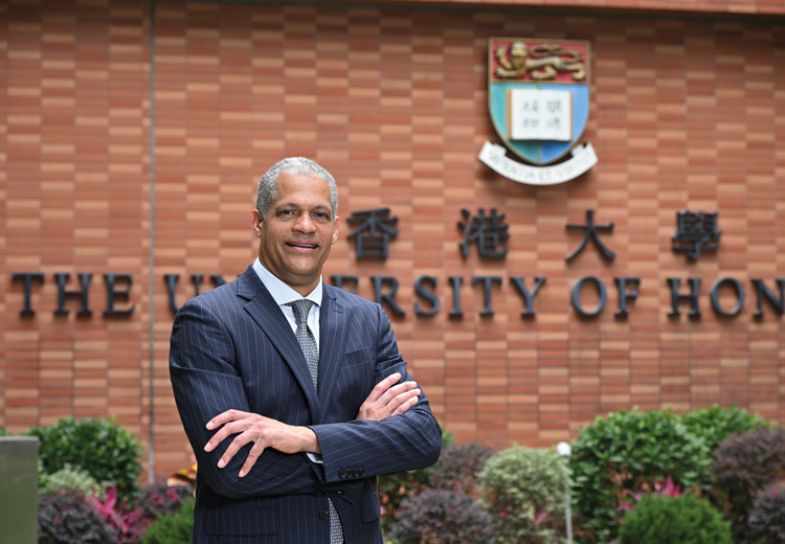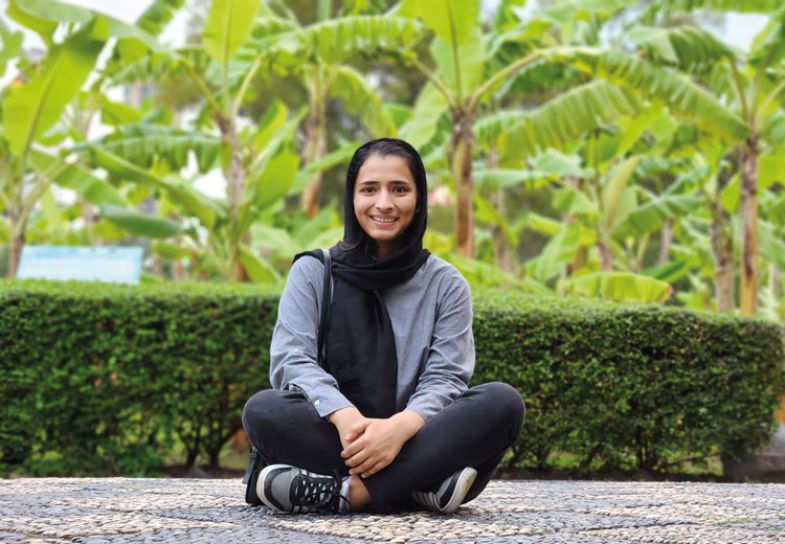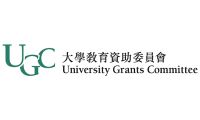
Hong Kong’s higher education sector is more attractive than ever to international students seeking world-class education and a life-changing learning experience
As a vibrant, open and diverse cosmopolitan city, Hong Kong is thriving as an ideal study destination for students from around the world. It is the place where East meets West, not only culturally but also in terms of employment opportunities, internships and networking. What makes the city unique is the presence of a strong and world-class publicly funded higher education sector. Among the eight universities receiving public funding through the University Grants Committee (UGC), five were ranked in the top 100 in the Times Higher Education World University Rankings 2024.
Thanks to Hong Kong’s international outlook and its higher education sector’s excellent reputation, the city embraces students from around the world. To further raise Hong Kong’s profile in the international higher education landscape, the Heads of Universities Committee’s Standing Committee on Internationalisation (HUCOMSCI), jointly formed by the eight UGC-funded universities, is spearheading the Study in Hong Kong initiative.
Derek Collins, convener of the HUCOMSCI, guarantees students an elite education if they study in Hong Kong. The eight UGC-funded universities have their unique strengths, differentiated roles and distinctive legacies, thereby offering a diverse and comprehensive learning experience for international students. “Different faculties in Hong Kong universities – such as business, engineering, arts and law – attract leading scholars and experts from all over the world, including roughly 70 per cent non-local academic staff from outside of Hong Kong. World-leading professors lead to the kind of educational experience that is essential for young people today,” Collins says. “What better way to deliver that knowledge than through the experiences of professors from different parts of the world?”
Collins is also associate vice-president of cultural and external affairs at the University of Hong Kong (HKU). He says Hong Kong’s universities have always had an international outlook and valued international students. As the sector rebounds from the impact of the Covid-19 pandemic, there has been a concerted effort to showcase this global focus.
Countries involved in China’s Belt and Road Initiative (BRI) make natural partners in HUCOMSCI’s efforts in internationalisation. Students from BRI countries who wish to study in Hong Kong can apply for the Government’s Belt and Road Scholarship, which covers tuition fees, accommodation and living expenses. “There are a lot of young people who need to be exposed to different parts of the world and need to be exposed to Asia,” Collins says. “We are giving students an international education with a strong emphasis on Asian perspectives and an Asian outlook.” The upcoming 50 per cent increase in the quota for the Belt and Road Scholarship speaks to the city’s ambition to expand its connection with the BRI countries.
Tehreem Fatima is a third-year biomedical science student from Pakistan, studying at HKU on a Belt and Road Scholarship. She says students will find Hong Kong a safe city with affordable student accommodation and opportunities to get real-world work experience. “I have done several internships, including two summer internships and an overseas internship,” she says. “Doing an overseas internship gave me more clarity on my career. It helped me to see the practical side of where I will be after I graduate and when I step into the work environment.”

Tehreem Fatima, third-year biomedical science student, the University of Hong Kong
Osandi Wijayasooriya from Sri Lanka is a third-year chemical technology student at the Hong Kong Polytechnic University and is also studying on a Belt and Road Scholarship. She said it was the university’s strong performance in rankings tables that ultimately swayed her decision to study there. “The standards are really high,” she says. “If you look at the rankings of the universities in Hong Kong, they are at least in the top 100 in many global ranking systems. That helped me choose Hong Kong for my higher education.” The university’s support made it easy to settle in on campus, she added.

Osandi Wijayasooriya, third-year chemical technology student, the Hong Kong Polytechnic University
In October 2023, the Hong Kong government unveiled a bold initiative to double the number of non-local students at the eight UGC-funded universities. Some 13,500 hostel units are being built to meet the rising demand for student housing. Postgraduate students are allowed to take on part-time employment to help finance their studies and the application process has been streamlined, with admissions offices now managing scholarships for international students. “The idea is to make it easier than ever for young people to find opportunities, funding and, ultimately, stay and work,” Collins says. “It used to be that if you were a postgraduate student from abroad you couldn’t work. The government has relaxed that.”
International students in Hong Kong also benefit from exposure to one of the most influential economies and richest cultures in the world. “Undergraduate students from anywhere in the world need to understand something about China,” Collins says. “They need to appreciate first-hand what’s developed here and what it is like to be here.” Three of the UGC-funded universities have opened campuses in Mainland China, all of which are situated within the one-hour living circle of the Guangdong-Hong Kong-Macao Greater Bay Area. The rest of the UGC-funded universities also offer numerous opportunities for internships, study trips and service learning on the mainland.
Collins says Hong Kong’s international students are offered a “front row” perspective on life and business in Asia, allowing students to build networks that will help grow their careers. “It supercharges your experience to have an internship in Hong Kong, to have work experience here and to have built a network,” he says. “Having those connections in Hong Kong will be crucial to their career advancement.”
International students can stay in Hong Kong for a full degree programme, an academic year or just a semester as the UGC and HUCOMSCI’s internationalisation strategy accommodates exchange students. Over 2,600 student exchange agreements have been signed between UGC-funded universities and institutions across the globe. Afiya Ballard Debois, a third-year undergraduate student from Newcastle University, is an exchange student enrolled at HKU. For Ballard Debois, the opportunity to live and study in Hong Kong was too good to turn down. “I had never been to Asia before so to come to Hong Kong, to travel to other parts of Asia and to be introduced to Asia in general, has been a great experience,” she says.

Afiya Ballard Debois, third-year student, Newcastle University
Cultural exchange is equally valuable for students who come from other parts of Asia. Pran Kittivorapat, a fourth-year student from Thailand majoring in artificial intelligence at the Chinese University of Hong Kong, says support from the association for Thai students is one of the highlights of studying in Hong Kong. “You can make friends with people from all over the world,” he says. “It helps me to grow an open mindset.” Collins hopes many other students will follow the path taken by Kittivorapat and other international students in the city. “Hong Kong isn’t just open for global higher education, it was made for it,” says Collins. “You are in a city that has an international element in its DNA.”

Pran Kittivorapat, fourth-year artificial intelligence student, the Chinese University of Hong Kong

